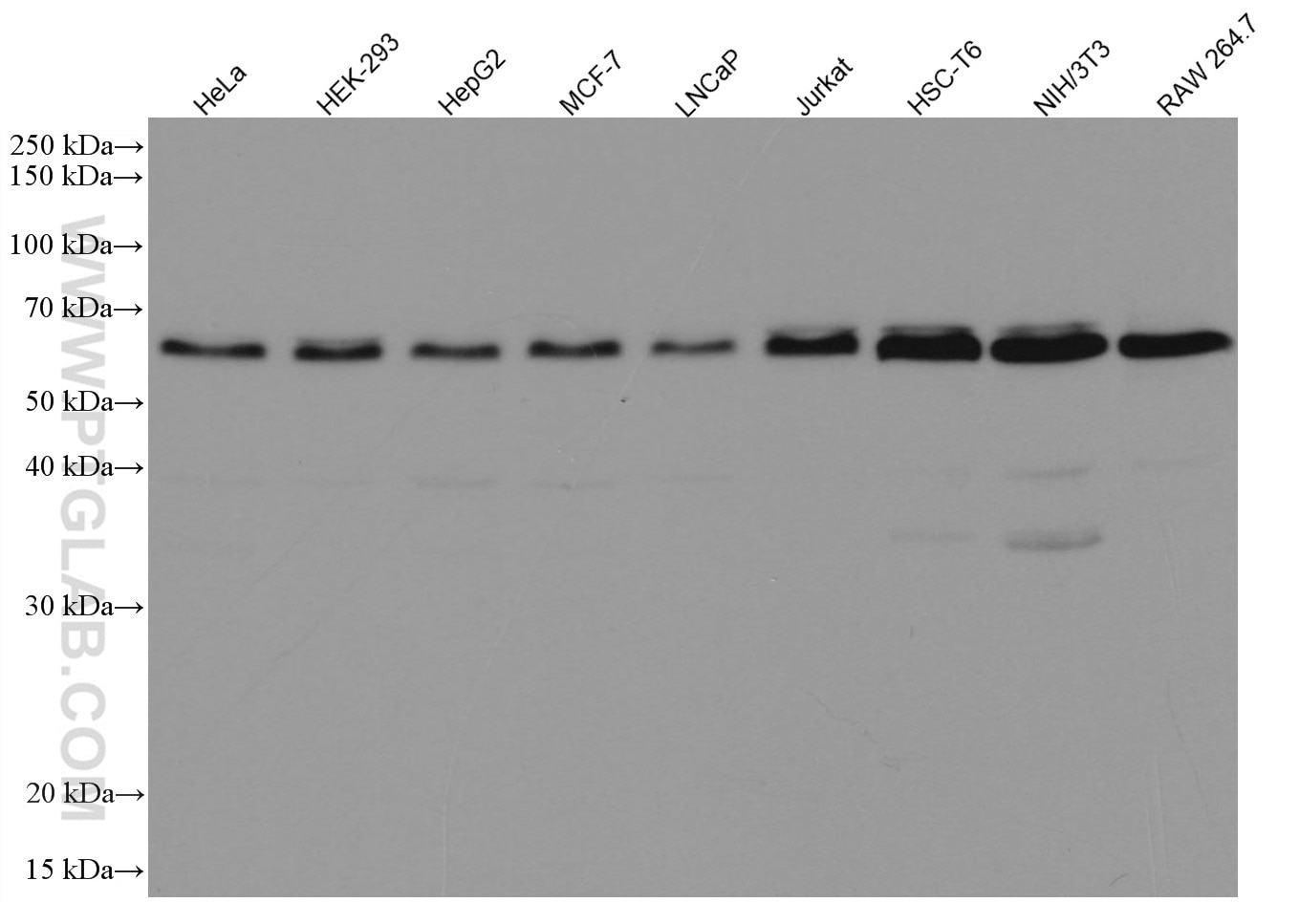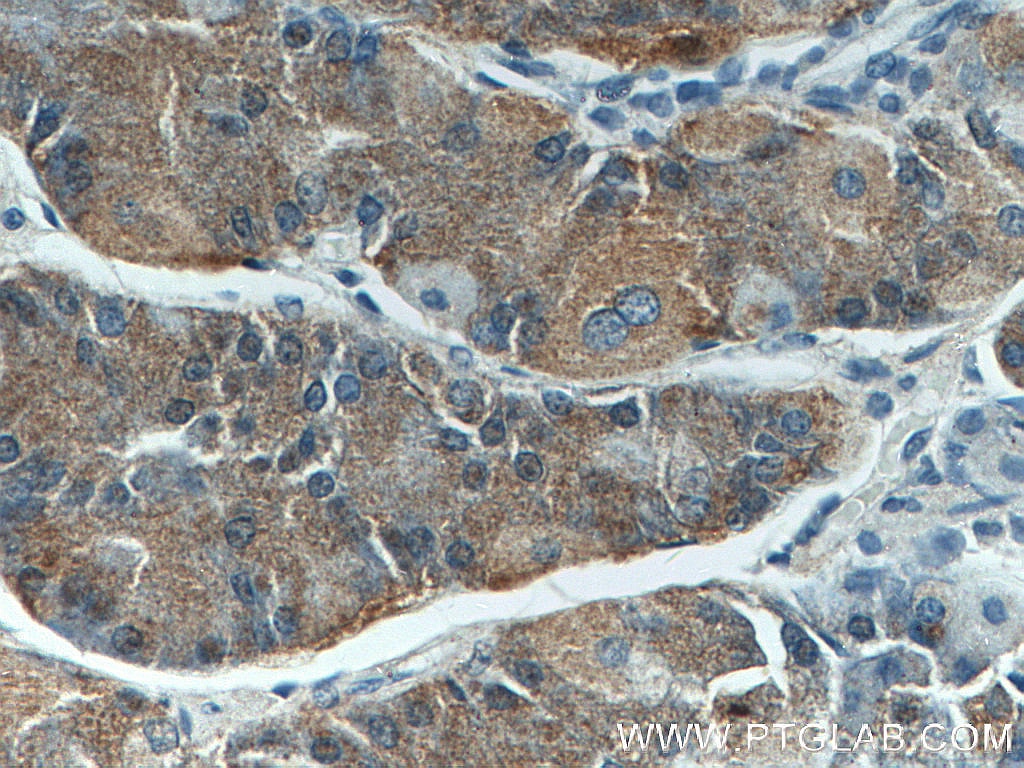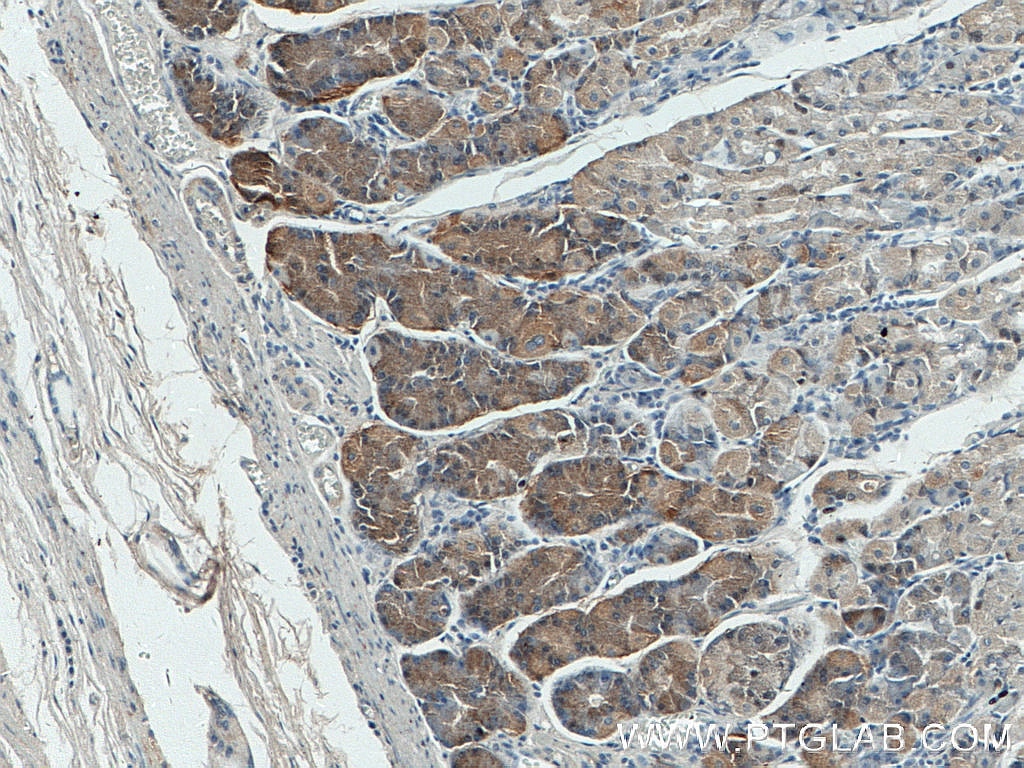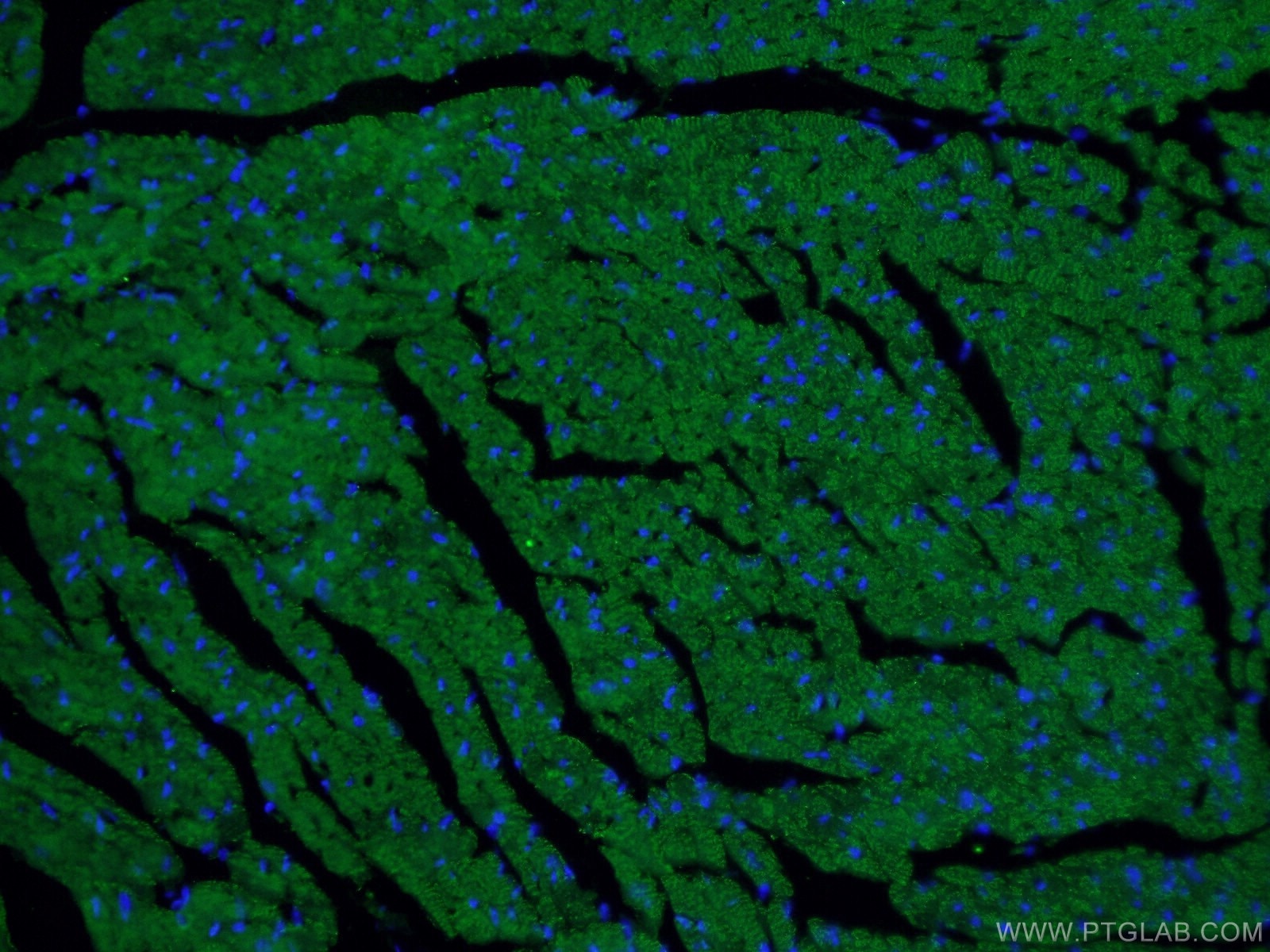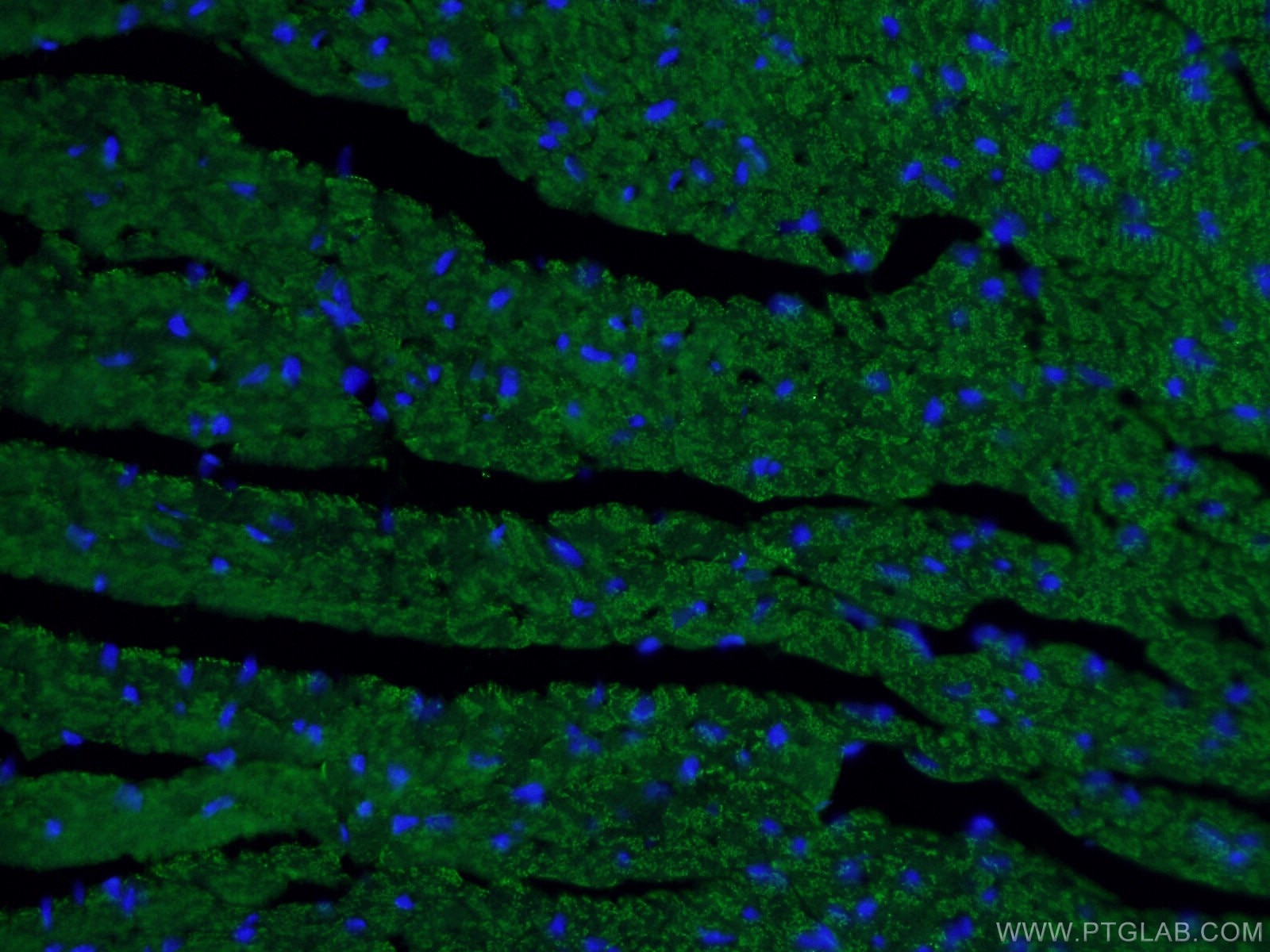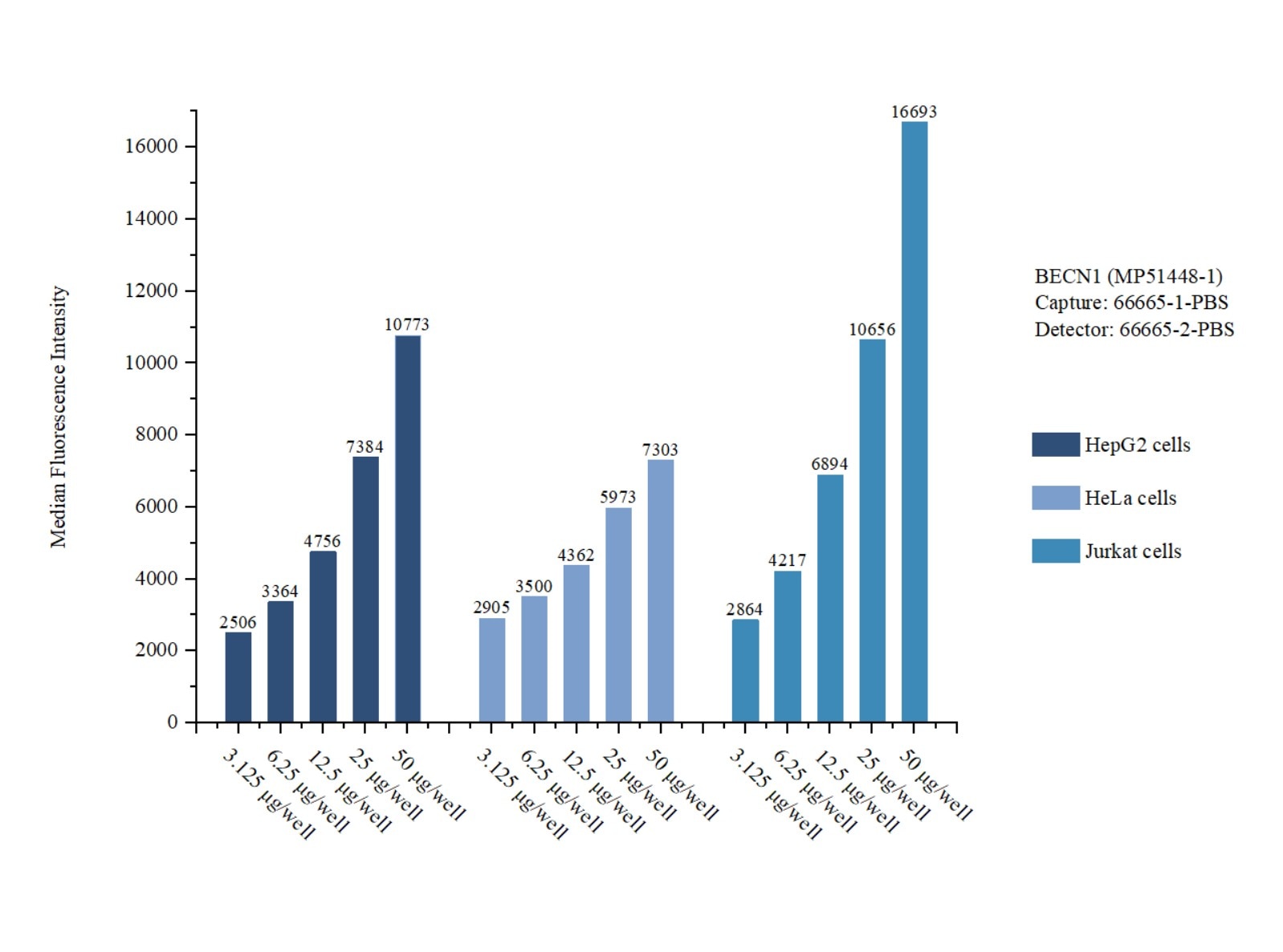Anticorps Monoclonal anti-Beclin 1
Beclin 1 Monoclonal Antibody for WB, IHC, IF-P, Cytometric bead array, Indirect ELISA
Hôte / Isotype
Mouse / IgG1
Réactivité testée
Humain, rat, souris
Applications
WB, IHC, IF-P, Cytometric bead array, Indirect ELISA
Conjugaison
Non conjugué
CloneNo.
1C10C4
N° de cat : 66665-1-PBS
Synonymes
Galerie de données de validation
Informations sur le produit
66665-1-PBS cible Beclin 1 dans les applications de WB, IHC, IF-P, Cytometric bead array, Indirect ELISA et montre une réactivité avec des échantillons Humain, rat, souris
| Réactivité | Humain, rat, souris |
| Hôte / Isotype | Mouse / IgG1 |
| Clonalité | Monoclonal |
| Type | Anticorps |
| Immunogène | Beclin 1 Protéine recombinante Ag1843 |
| Nom complet | beclin 1, autophagy related |
| Masse moléculaire calculée | 52 kDa |
| Poids moléculaire observé | 52-60 kDa |
| Numéro d’acquisition GenBank | BC010276 |
| Symbole du gène | Beclin 1 |
| Identification du gène (NCBI) | 8678 |
| Conjugaison | Non conjugué |
| Forme | Liquide |
| Méthode de purification | Purification par protéine A |
| Tampon de stockage | PBS only |
| Conditions de stockage | Store at -80°C. 20ul contiennent 0,1% de BSA. |
Informations générales
Beclin 1, also known as ATG6 or VPS30, interacts with various cofactors (e.g. Ambra1, Barkor (Atg14), Rubicon, or UVRAG) to regulate the lipid kinase Vps34 and promote the formation of the BECLIN1-Vps34-Vps15 complex, hence inducing autophagy. Its function (via the BH3 domain) is inhibited by Bcl-2 or Bcl-XL. Beclin 1 (BECN1) is a crucial molecule in the control of the autophagic activity, and its activity is regulated by multiple mechanisms, including the post-translational modification, protein-protein interaction, and subcellular localization. It plays a role in crosstalk between apoptosis and autophagy. It has been reported that Beclin 1 can be cleaved into fragments of 50, 37 and 35 kDa during apoptosis. It is involved in many disorders, including neurodegeneration and cancer (tumorigenesis). Beclin 1 is a mammalian tumor suppressor, and its gene is monoallelically deleted in 75% of ovarian, 50% of breast, and 40% of prostate cancers. Decreased expression of Beclin 1 has also been observed in human brain and lung tumors. The level of Beclin 1 was decreased in the affected brain regions of patients with Alzheimer's disease early in the disease process. Recent studies have also shown that gain and loss of Beclin 1 function affects the death of heart cells.
